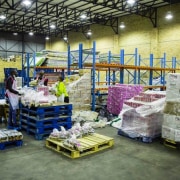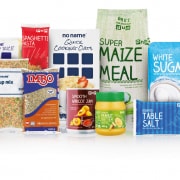|
Getting your Trinity Audio player ready...
|
By Kwazi Dlamini
First published in City Press
South Africans with the means to do so have been using the tap of a finger for meals to be delivered to their homes, since the country went into Covid-19 coronavirus lockdown level 4 earlier this month.
Between technical glitches that hampered said deliveries and complaints over the quality of the food delivered, social media was abuzz – albeit for a short time – while fast food chains scrambled for the best PR-inspired responses and made promises to fix their customers’ gripes. Soon, it seemed, all was back to normal and Mr D Food, Uber Eats and others were back in business, bringing customers the convenience and luxury of hot food prepared by others.
Now picture this: A family, not necessarily in rural South Africa, but as urban as a Mr D customer, waiting – not for a delivery man to show up at their door, but for a public representative (elected in good faith) to provide the food parcel for which they signed up.
When this doesn’t arrive, the family may go into panic mode, or even discontent, but there’s little relief for them posting on social media, so they don’t, or can’t. After all, they’ve done as they were instructed to do by President Cyril Ramaphosa in his public addresses.
They stayed home and answered the knock at their door of ward committee members enquiring about their need for a food parcel to sustain themselves in this difficult time.
They provided their identity details. And they waited.
For many others like them across the country, the wait wasn’t too long.
The parcel did arrive and they did sign on the designated spot as a show of compliance and, again, good faith. The form, for accountability’s sake, was taken to the local authority governing that community.
The work of the public representative was done.
The families were probably reassured that there would be further parcels arriving in future, because the government aims to keep its promise.
But back at the home of the family in waiting, information about when their parcel will finally be delivered hasn’t been shared. Neither has the reason for its delay.
CW blog shows Covid-19 struggles
Corruption Watch launched a blog in April named Lockdown Life, with the sole purpose of soliciting lockdown experiences of as many South Africans as possible in the spirit of sharing and caring.
The first few posts that trickled in touched on the usual: everything from fears of the unknown in relation to Covid-19 to hacks for getting through the day without leaving one’s house. It wasn’t long, though, before there was a slew of posts which named people who’d mishandled food parcels.
The common denominator? A councillor and a ward committee member or members.
They were either selective in who they gave parcels to, keeping some of these for themselves, or removing certain items from them and delivering only measly, inadequate rations, or simply never showing up at all on the doorsteps of those waiting for desperately needed food.
One account of such disregard for community came from Vosloorus in Ekurhuleni, where local spaza shop owners had donated food. On asking for directions to the recipients from the ward councillors in the affected communities, they were told to hang ten, as the councillors themselves would do the distributing.
The food was indeed picked up from a designated location by several councillors and the donors were thanked for their selflessness.
Fast-forward two weeks, and donors and beneficiaries alike were in the dark as to what had happened to the food.
An Eastern Cape community member also gave an account of what occurred in his hometown. Here, the method of food vouchers was preferred over parcels. Families who had signed up were indeed alerted when the vouchers arrived for them.
The writer of the heart-breaking email, however, never got to receive his, because although the standing rules were that each household would receive one voucher, some departed the queue with multiple vouchers, leaving others families without.
Harsh action against transgressors – as promised by Ramaphosa in his 21 April address to the nation – hasn’t materialised, at least not to the extent of reassuring us, as readers of these emails from ordinary South Africans, that the next food parcel or voucher meant for a poor family will actually arrive.
Could it be time for councillors to step back from food-parcel distribution?








